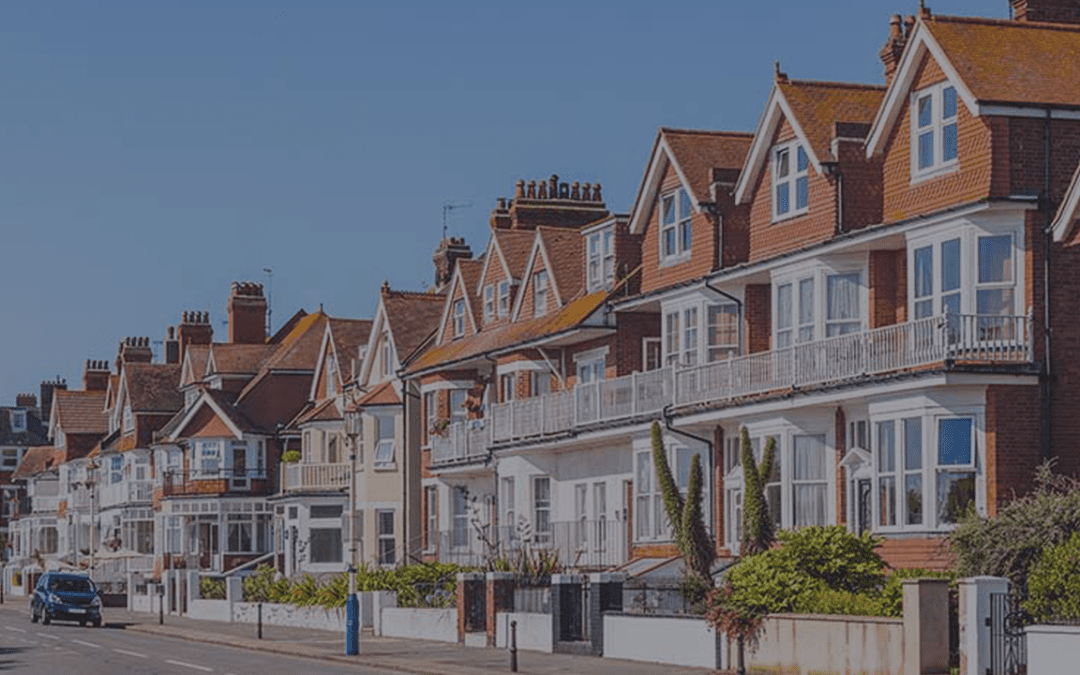In this post, I want to give you an introduction to Vendor Finance. This is where the seller of a property helps you buy the property by lending you the deposit money. I’ve used this strategy personally. Now, bit of a health warning here. You need to make sure you do this correctly so you’re not doing anything that’s dodgy or could be questioned by the mortgage company. There are some circumstances where vendor finance work. Most of the time, it doesn’t work. Whenever you learn a property investing tool or strategy, it’s important you don’t try and fix every single property with that particular tool. This particular strategy, vendor finance, works in certain circumstances. Let me explain, first of all, the circumstances when vendor finance will work and I’ll just touch on some of the different ways that it can be done.
An Ethical Win-Win for Both You and the Vendor
Imagine there’s someone who wants to sell a property. They need to have some equity in that property. It might be that there’s no mortgage at all. It’s what we call “unencumbered.” There’s no loan or mortgage on it or it might be someone that does have a mortgage with a mortgage company and they want to sell that property. They then transfer it over to you. This is a strategy where maybe that, although there’s equity, they want to sell and they’re not really prepared to sell at a discount. However when they do sell, they don’t really need the money they make, they’re just going to put it into the bank. As we know with bank interest rates at the moment, they’re not going to make a lot of money on that deal. The whole point when we use any creative finance, such as vendor finance or anything else, we want to come up with a solution that not just works for us, but that’s also really good for the other person, the owner of the property. That’s why they’re going to want to do this because it makes sense for them and makes sense for us. It’s what we call an ethical win-win.
It’s very important that when we’re speaking to a seller, we ask some great questions. We listen very carefully to what they say to us so we can identify their circumstances and work out if this is appropriate for them. There would be no point in you suggesting something that isn’t going to work for them as they’d just think you’re a time waster. The circumstance we’re looking for is someone who is motivated. They’ve got a property they want to sell and they don’t want that property. There must be equity in the property but they don’t necessarily need all of the money from the sale. They might need some, they might just clear a mortgage or they might need a little bit of money to do something. But if there’s enough equity that they don’t need, that they would have otherwise put into the bank, that’s when vendor finance could work for us.
“When we use any creative finance, such as vendor finance or anything else, we want to come up with a solution that not just works for us, but that’s also really good for the other person, the owner of the property.”

Mortgage-Free Properties and First Charges
So there are four fundamental types of benefacts. I’m going to touch on these briefly and tell you about a resource where you can learn more about them. The first one is where they own the property outright. There’s no mortgage on the property at all. What they would do is agree to sell you the property. You don’t get a mortgage on it at first, they will transfer the property over to you into your name and they get a first charge on the property. So what’s a first charge? Well, if you borrow money from a bank, you get a mortgage. They have a first charge on the property. That means if you default on your payment, they can take the property back. If someone’s going to give you their property, you’re not giving them any money at the moment; they want to have some security. That’s why we give them the first charge. You then pay them a monthly interest that would be maybe equivalent to having a mortgage, but it’s much more than they would get if they just put the money into the bank. They get the sale done on Land Registry and it transfers over to you. No money changes hands. You obviously need to pay the stamp duty and things at the time and you just pay them a monthly fee. Now, how do you pay them back? Ideally, it’s a property where you can add value. Maybe it’s a house. You then turn it into an HMO, adding value to the property. You’re increasing the value so that when you come to mortgage it six months after you’ve owned it, you refinance it and pay them back all their money. You then own a property 100% with very little of your own money actually invested. So that’s the first way, when they don’t have any mortgage at all.
Funding Property Investment Deals that Have Mortgages
It gets a bit more complicated if they have a mortgage. If they have a mortgage, they need to get some money from the sale to clear that mortgage. Because remember, the property is going to transfer over to you. Their mortgage needs to be paid off. So you are going to need to get some sort of finance. What you could do is you could come to a platform like CrowdProperty. To fully declare, crowdproperty.com is one of my businesses, I’m the chairman and the major shareholder. It’s a platform that funds property deals, whether they’re development or bridging etc. We match people who’ve got money as they want to get a better than they’d get at the bank, it’s a marketplace really. So we do our due diligence on the property. I say we, but I don’t actually have much to do with the day-to-day running of the business anymore. I have a team of people doing that, but they find great deals. Put them on the platform. People come and lend. At CrowdProperty, we’re okay with vendor finance because we understand that as long as there’s enough equity there to protect our lenders, we’re okay if the owner lends you the deposit. Let’s say a property is worth £200,000, there’s a mortgage of £110,000 and the owner wants to clear the mortgage. They want to get £10,000 but that’s all they need. The remaining £80,000 is equity they’re just going to put in the bank and do nothing with.
You could come to CrowdProperty with a deal like that and say, “Look, I’m buying this property. I’m buying it with vendor finance.” So we know what you’re doing, “And buying it for £200,000.” That’s what goes on Land Registry. They might lend you 60% of the value. Let’s say they lend you £120,000. That’s enough to clear the mortgage for the owner, their £110,000, and give them another £10,000. Now the owner, they might have a restriction on their property because you still owe them the £80,000. CrowdProperty would be happy with the second charge, or restriction, and then you add value to the property in the same way as we talked in the first example. Six months or nine months later you refinance it onto a normal mortgage and you’re taking out the money to pay back the owner. It might be you can’t pay the owner back all the money straight away. That’s okay because they might be happy because when you give it back to them, they’re just going to stick it in the bank and get no return. They might be happy to leave somebody there for maybe five years, getting a great return on their money that will be cheaper than if you’ve got a mortgage, without you having to put a big deposit in.
“We match people who’ve got money as they want to get a better than they’d get at the bank, it’s a marketplace really.” “
Buying the Property at Full Price
The third and the fourth way are very similar; you buy the property at the full price and you put your deposit in. You must have your money initially, it could be yours or someone else’s. The third method is after the sale, in a totally unrelated transaction once they’ve got all their money, they might make a loan to you or one of your businesses and effectively, you’re getting the money to cover your deposit. The fourth way is maybe they’ve got lots of money and they decide to give you a loan before you buy their property. They might want some security on another property, of course, and then you can then use that money as a deposit to buy the property from them. You’d still owe the money secured on the other one, but basically you’ve done it using none of your own money. Again, this has to be done correctly. You need to make sure that your solicitors are aware of things so they can declare anything they need to declare, otherwise it’s mortgage fraud. We’re not talking about that. We’re talking about doing it in a creative way that ticks all the boxes to make sure things are done correctly.










